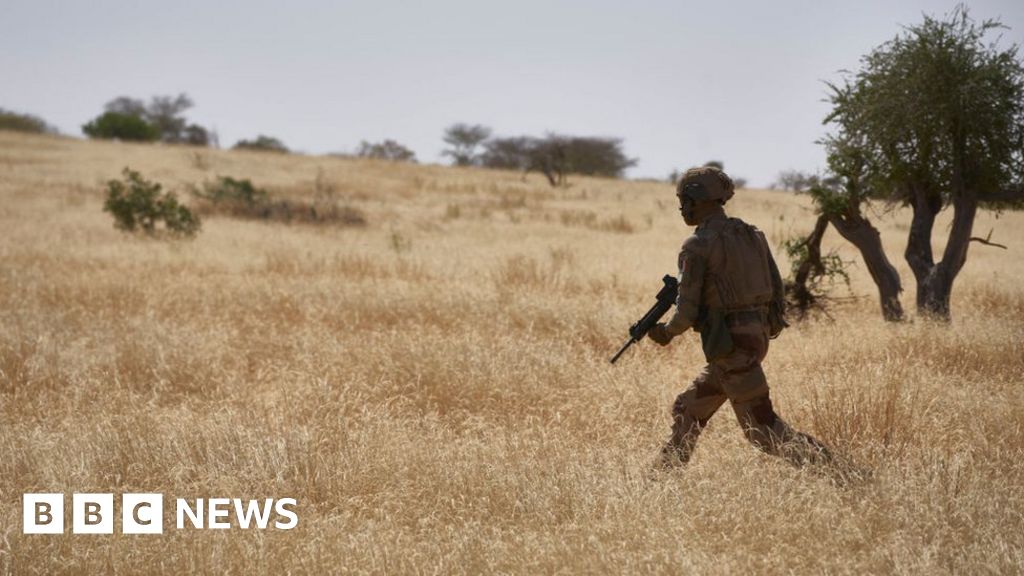The president of the COP28 climate summit, Sultan Al Jaber, recently claimed there is “no science” that says phasing out fossil fuels is necessary to limit global warming to 1.5 degrees Celsius above pre-industrial levels, in comments that have alarmed climate scientists and advocates.
The future role of fossil fuels is one of the most controversial issues countries are grappling with at the COP28 climate summit. While some are pushing for a “phase-out,” others are calling for the weaker language of a “phase-down.” Scientific reports have shown that fossil fuels must be rapidly slashed to keep global warming below 1.5 degrees — the goal of the Paris climate agreement, and a threshold above which scientists warn it will be more difficult for humans and ecosystems to adapt.
Al Jaber made the remarks during the She Changes Climate panel event on November 21, which came to light on Sunday in a story published by the Guardian, and in video that CNN has reviewed. Al Jaber was asked by Mary Robinson, former president of Ireland and current chair of the Elders Group, an independent group of global leaders, if he would lead on phasing out fossil fuels.
In his response, Al Jaber told Robinson, “there is no science out there, or no scenario out there, that says the phase-out of fossil fuel is what’s going to achieve 1.5.” He said he had expected to come to the She Changes Climate meeting to have a “sober and mature conversation” and was not “signing up to any discussion that is alarmist.”
He continued that the 1.5-degree goal was his “north star,” and a phase-down and phase-out of fossil fuel was “inevitable” but “we need to be real, serious and pragmatic about it.”
In an increasingly fractious series of responses to Robinson pushing him on the point, Al Jaber asked her “please, help me, show me a roadmap for a phase-out of fossil fuels that will allow for sustainable socio-economic development, unless you want to take the world back into caves.”
Al Jaber’s presidency of the COP28 summit has been controversial. The Emirati businessman is the UAE’s climate envoy and chairs the board of directors of its renewables company, but he also heads the state-owned Abu Dhabi National Oil Company (ADNOC).
A spokesperson for the COP28 team told CNN in a statement “this story is just another attempt to undermine the Presidency’s agenda, which has been clear and transparent and backed by tangible achievements by the COP President and his team.”
“The COP President is clear that phasing down and out of fossil fuels is inevitable and that we must keep 1.5C within reach,” adding, “we are excited with the progress we have made so far and for the delivery of an ambitious (global stocktake) decision. Attempts to undermine this will not soften our resolve.”
Fossil fuels are the main driver of the climate crisis and as the world continues to burn oil, coal and gas, global temperatures are soaring to unprecedented levels. This year has seen record global heat, which has driven deadly extreme weather events.
Fossil fuel production in 2030 is expected to be more than double what would be necessary to keep global warming under 1.5 degrees, a recent report from several scientific institutions, including the UN Environment Programme, found. That report used scenarios laid out by the Intergovernmental Panel on Climate Change (IPCC) and the International Energy Agency (IEA) to reach its conclusion.
“If the IPCC and IEA do not count as science then I don’t know what does,” said Ploy Achakulwisut, climate researcher at the Stockholm Environment Institute and one of the authors on the report. She told CNN it concluded “that all fossil fuels have to be phased out especially if carbon dioxide removal and carbon capture and storage measures fail to scale.”
Carbon capture refers to a set of techniques that aim to remove carbon pollution from the the air and to capture what’s being produced from power plants and other polluting facilities. While some argue carbon capture will be an important tool for reducing planet-heating pollution, others argue these technologies are expensive, unproven at scale and a distraction from policies to cut fossil fuel use.
Scientists and climate groups heavily criticized Al Jaber’s comments.
Romain Ioualalen, global policy lead at non-profit Oil Change International, said in a statement Al Jaber’s statements during the panel discussion were “alarming,” “science-denying” and “raise deep concerns about the Presidency’s capacity to lead the UN climate talks.”
Joeri Rogelj, a climate professor at Imperial College London, said he strongly recommended Al Jaber revisit the latest report from the Intergovernmental Panel on Climate Change.
“That report, approved unanimously by 195 countries including the UAE, shows a variety of ways to limit warming to 1.5°C — all of which indicate a de facto phase out of fossil fuels in the first half of the century. Will that take the world back to the caves? Absolutely not,” he said in a statement.
Mohamed Adow, director of climate think tank Power Shift Africa, said Al Jaber’s remarks were a “wake up call” to the world and COP28 negotiators. “They are not going to get any help from the COP Presidency in delivering a strong outcome on a fossil fuel phase out,” he said in a statement.
This COP summit will conclude the first global stocktake, where countries will assess their progress on climate action progress and work out how to get the world on track to limiting catastrophic global warming.
CNN’s Angela Dewan and Rachel Ramirez contributed reporting
For more CNN news and newsletters create an account at CNN.com

Daisy Hips is a science communicator who brings the wonders of the natural world to readers. Her articles explore breakthroughs in various scientific disciplines, from space exploration to environmental conservation. Daisy is also an advocate for science education and enjoys stargazing in her spare time.








